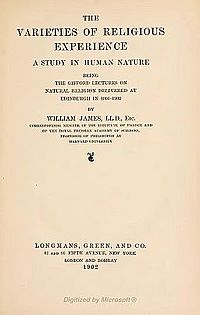... In the Western tradition it's less about coming to terms with reality, and more about understanding reality...
And controlling nature. Western thought is pessimistic because it views nature as a dangerous mess that needs to be domesticated to maximize human comforts. The eastern spiritualities we're talking about tend to be much more optimistic, in suggesting that if humans will trust nature better rather than force everything to suit their delusional desires, then things work out more serendipitously.
I don't know. I think whatever the mechanics of nature, it doesn't matter from the POV of the phenomenology of experience. So long as I'm aware and experiencing "the world" (whatever it is), then I can enjoy that, or not, according to the quality of my awareness.... Zen and Advaita are great but you're missing a whole side of it if you don't understand the actual mechanics of the world as well.
The one thing we know, that's true regardless of whatever the material causes, is our subjective experience. If "the world" is atoms, a simulation, or whatever, the experience of it is what it is. Getting deeply and compassionately acquainted with that... in love with it even... is key to have a high-quality subjective experience (and thus an improved world, since the inner-outer split is an illusion).
I'm going to expand on this mainly to draw out my own thoughts.
If philosophies like Zen and Vedanta are going to have any real utility I think a person needs to have an analytic understanding of them on some level. That seems counter-intuitive because stopping the analytic mind is the point, but I don't think you can get to that state without the analytic realization of the point.
This is why for so many people religious philosophies and doctrines never reach beyond an intellectual exercise. They think and think about it but never really get it, so are never able to move beyond the initial analytic mindset. Which explains why I believe the understanding part of the equation is essential.
I'm not sure what the difference is between "analytic understanding" and unhelpful intellectualizing.
Maybe what you're getting at is the need for greater clarity? People easily get the wrong impression of Zen because there's a lot of jargon and hyperbole in it.
Anything pre-21st century will have some problems of clarity. The increased clarity has happened among the 2nd and 3rd generations of writers explicating them to a western mindset.
I also have lost interest in the belief-systems. I looked for a "baby in the bathwater" of religions and think I found it. And it's basically the same that Sam Harris found in his studies of Dzogchen (a school within Tibetan Buddhism). My interest now is more to do with the phenomenology of consciousness. It feels to me like a natural progression after studying Zen for a while. It feels like going deeper into the heart of what "the point" is in these eastern spiritualities.

